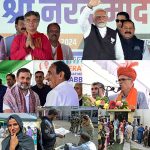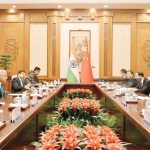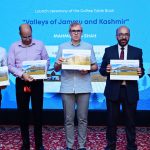External Affairs Minister Dr. S. Jaishankar has said that 75 % of the border dispute with China has been sorted out. While speaking at the Asia Society Policy Institute in New York on Tuesday. While clearing the Indian position in Ladakh, he said, “When I said 75 % of it (border dispute) has been sorted out, it is only the disengagement. So, that’s one part of the problem. So we have been able to sort out much of the disengagement in the friction points. But some of the patrolling issues need to be resolved. The next step will be de-escalation.” Jaishankar underlined the difficult history with China and said it moved several troops to the Line of Actual Control (LAC) in 2020 in spite of the explicit agreements with India. He substantiated it by saying that “we have a difficult history with China. Despite the explicit agreements we had with China, we saw in the middle of Covid that the Chinese moved a large number of forces in violation of these agreements to the LAC. It was likely a mishap would happen and it did. So, there was a clash, and a number of troops died on either side. That, in a sense, overshadowed the relationship.” These remarks make it clear that all is not well in the Indo-China relationship though there has been some movement to normalise the situation. It is pertinent to mention that Jaishankar has made these remarks well before the scheduled BRICS Foreign Ministers meeting in New York. As far as the Prime Minister Narendra Modi will hold a standalone structured meeting with the Chinese President Xi Jingping in Kazan, Russia on the side-lines of the BRICS summit on October 22-23. Jaishankar’s statement must also be seen in the context of making the world bipolar and its pivot lies in Asia where India and China are stuck in a territorial tangle. He even clarified that India upholds its national interests supreme in the foreign policy. He was indicating towards the ties with Russia. India has to balance its ties in the emerging situation when the world is undergoing multiple conflicts. It can’t afford to lose balance. On the other hand Pakistan has again started meddling in the internal affairs of India by referring to Jammu and Kashmir at the UN. Pakistani Prime Minister Shehbaz Sharief is unnerved by Indian stance on the reclamation of POJK areas that are under its illegal occupation. This is indeed meant to activate the subversive networks in Jammu and Kashmir during the election time and give traction to terrorism. However there has been a significant development. Turkish President Recep Tayyip Erdogan has not raised the Kashmir issue at the UN in his speech this time. He has been doing it for years to show solidarity with Pakistan. This is because he is showing an olive branch to India to gain India’s support for Turkey in the BRICS. He knows that India’s support is crucial. Not touching the Kashmir issue this time at the UN is indeed significant as it has happened when the Assembly Elections are undergoing in Jammu and Kashmir. It must be remembered that a delegation of foreign diplomats have recently visited Jammu and Kashmir and were satisfied with the democratic process. The bottom line is that both Chinese and Pakistani moves on the borders besides the acts of subversion are meant to destabilise Jammu, Kashmir and Ladakh. It goes to the credit of Indian diplomacy that there has been a change in world perception by defeating the propaganda of the belligerent neighbours. There is a need to keep the security grid on high alert with the diplomatic options being asserted in tandem to secure the Northern frontier of India in the Himalayas.
India Must Maintain High Alert in J & K

Sign Up For Daily Newsletter
Be keep up! Get the latest breaking news delivered straight to your inbox.
By signing up, you agree to our Terms of Use and acknowledge the data practices in our Privacy Policy. You may unsubscribe at any time.
Leave a Comment
Leave a Comment







